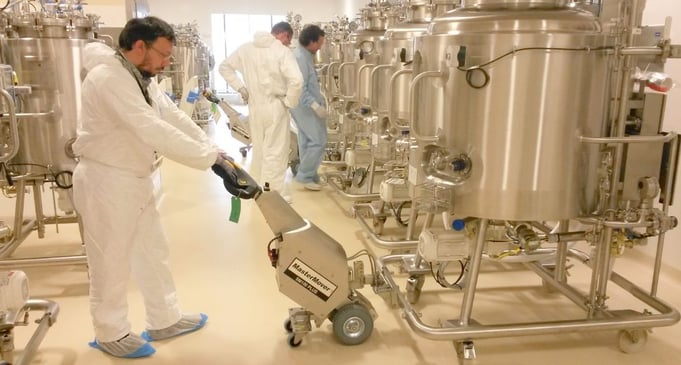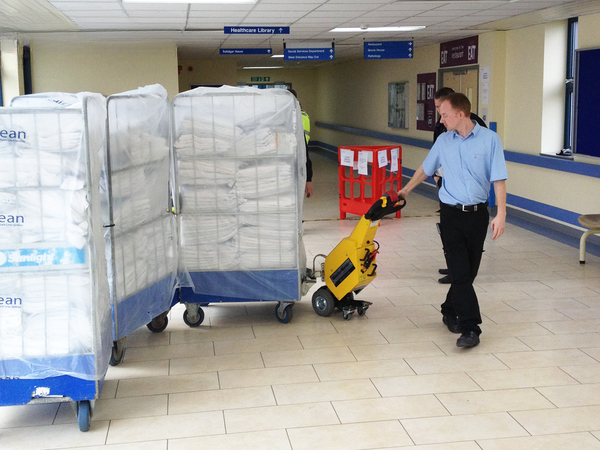Manual Handling Solutions For Healthcare
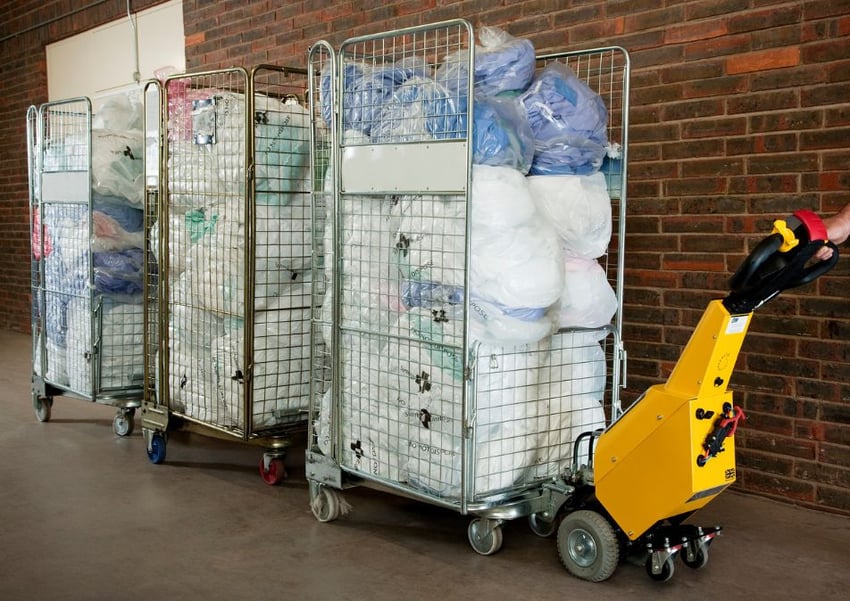
Trust Managers in the NHS and Healthcare industry are neglecting easy and effective ways to improve efficiency in portering operations. Despite the NHS's goal of increasing efficiency by 2.2% per year, many simple measures are being overlooked. Portering is a crucial aspect of hospital management, supporting clinical services through the movement of patients and essential items. However, the reliance on manual handling is stretching the portering resource thin, which can have a negative impact on patient care.
According to MasterMover, a manufacturer of pedestrian electric tugs for the safe, efficient movement of beds, waste bins and roll cages, there is a simple, cost-effective fix to the issue.
Recognising Areas For Improvement
“Every time the Government clamps down on the NHS demanding further cost savings, managers instinctively look towards clinical services, yet portering is massively overlooked as a source of efficiency savings,” suggests Hugh Freer, Sales Director at MasterMover.
There can be as many as 30-40 people in a busy hospital whose time is taken up exclusively with moving waste bins. Given their weight, a porter can generally push only one at a time – or risk injury or accident trying to move two at once. A fully loaded bin can weigh up to a third of a tonne.
Hugh Freer, European DirectorMasterMover
By using a mechanical aid, it becomes possible to transfer up to six bins in a single journey, speeding up disposal and freeing up portering resource for other activities.
The implications of this can be enormous. With a greater number of porters now available for service delivery, patients can be transferred to their appointments without incurring delay. “Research suggests that portering delays are the biggest single cause of failure to meet waiting time or extended length of stay targets,” advises Hugh Freer. “With NHS success determined so much by service delivery performance, the use of electric tugs can therefore help Trusts to meet these targets and enhance the patient journey.”
Providing Porters With Electric Tow Trucks Will Deliver NHS Cost Savings And Improve Patient Care
More efficient movement of patients within the hospital system also represents a significant cost saving. “Consider, over the course of a year, all those times that X-ray machines or MRI scanners stand idle while doctors wait for patients to be transferred from the ward. With mechanical handling aids, this ceases to be an issue.”
The Ideal Manual Handling Solution for Healthcare
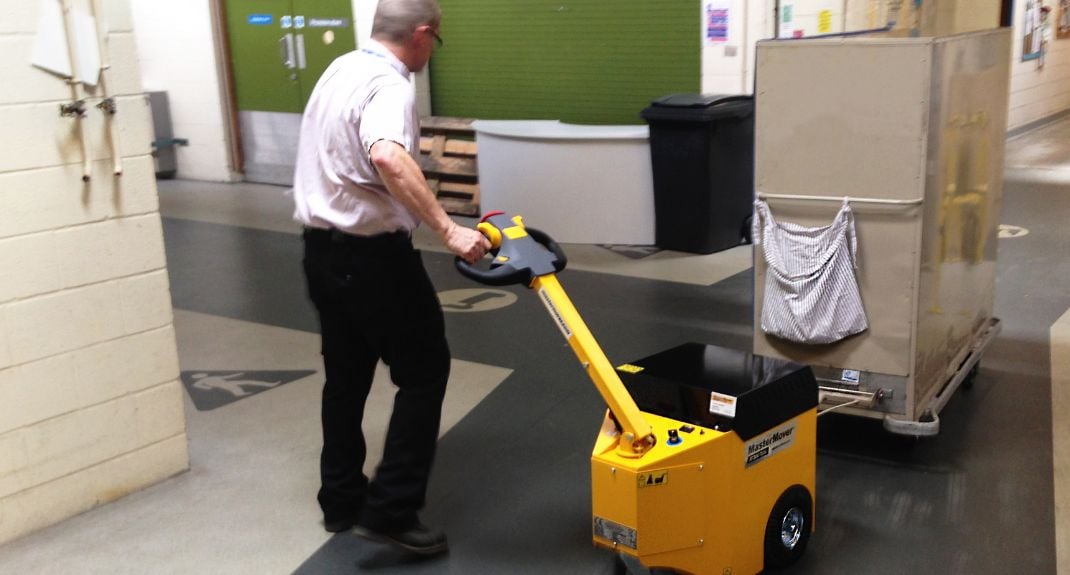
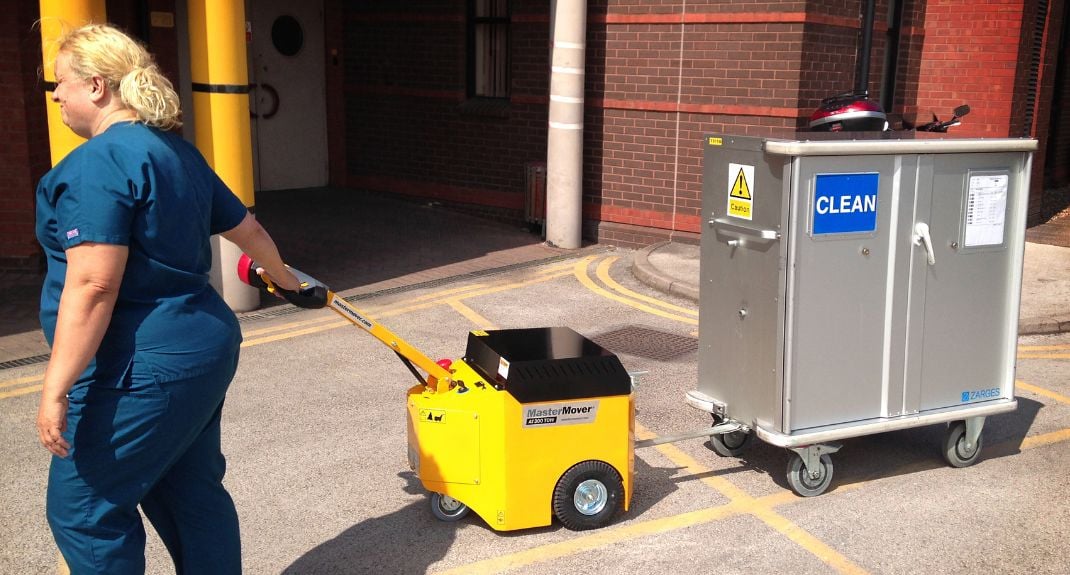
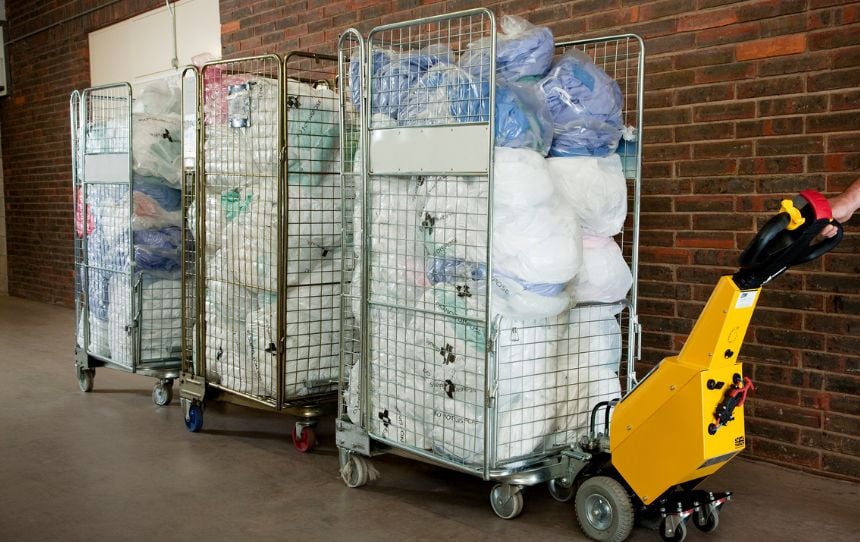
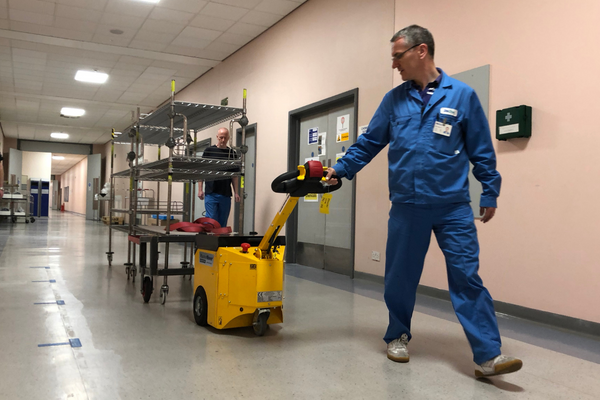
There is even an element of infection control, given that delays in removal can cause the sluice room to fill up and overspill be left in the corridor, where it presents a significant hazard.
MasterMover electric tugs are already supplied to over 130 hospitals across the UK. SmartMovers are used to transport everything from roll cages containing medical notes through to laundry, waste and other items.
Purpose-designed For Healthcare & Hospitals
The tugs have been developed with hospitals in mind. As they are pedestrian controlled, there is no risk of porters losing control of the tug; furthermore, their flexible handling is ideal for navigating tight corners, sharp turns or uneven slopes.
MasterMover says that this belief is borne out by the benefits it has already delivered to Trusts across the UK. Glasgow Royal Infirmary, for example, has boosted portering efficiencies and productivity by at least 20 per cent after investing in MasterMover electric tugs for moving roll cages and other bulk supplies around the hospital.
By purchasing the electric tugs from MasterMover, the hospital has reduced the risk of injury to its portering staff, whilst improving porter handling efficiencies and productivity by at least 20%. Furthermore, deliveries of supplies to the hospital can now be unloaded in 1/3 of the time. The tugs have also made the job easier and safer.
Andrew Russel, Portering & Security ManagerGlasgow Royal Infirmary
MasterMover works with Trusts to bring about best practice in portering, offering a site audit to assess current efficiency in order to determine an appropriate solution. “We regard our role to help Trust Managers with continuous improvement. Rather than the revolution demanded by swingeing cuts, mechanical handling can offer an evolution to maintain what already works and only improve those areas that need help,” Hugh concludes.
The company believes that the NHS as a whole needs to look at portering as a source of efficiency savings.
Much has been made of how NHS clinical operations can benefit from ‘lean’ processes more commonly found in the manufacturing sector. However, comparatively little has been said about how these same techniques can also be applied to the portering operation.
“Manufacturers around the world have been using our machines for years to increase productivity and improve safety. In the current economic climate we feel it’s more important than ever that we play our part in helping the NHS embrace these ideas and realise savings that could make a real difference,” concludes Freer.

